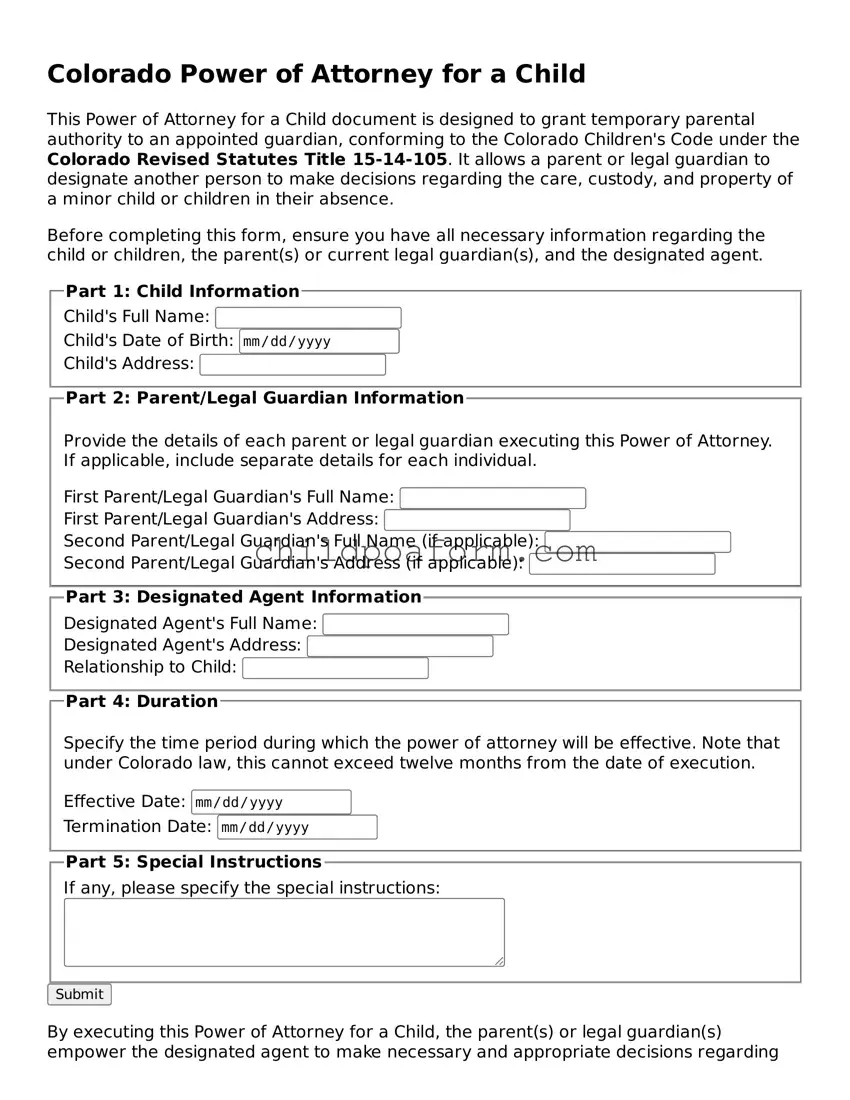Instructions on Utilizing Colorado Power of Attorney for a Child
When a parent or guardian in Colorado needs to temporarily delegate their parental responsibilities to another trusted adult, they can use a Power of Attorney for a Child form. This legal document allows the designated person, known as the agent, to make decisions and take certain actions regarding the child’s welfare in the absence or unavailability of the parent or guardian. The process of filling out this form involves providing specific information regarding the child, the parent or guardian, and the appointed agent, and it requires careful attention to detail to ensure its validity under Colorado law.
- Start by sourcing the official Colorado Power of Attorney for a Child form. This document can be obtained online through Colorado's state or court websites or by visiting a local courthouse.
- Enter the full legal name of the child (the principal) at the top of the form where indicated.
- Fill in the child’s date of birth and provide a brief description of the child for identification purposes, such as physical characteristics or Social Security number, if required.
- Identify the parent or legal guardian (the grantor) by writing their full legal name, relationship to the child, and complete contact information.
- Designate the agent by entering their full legal name and contact information. Specify their relationship to the child if any (e.g., grandparent, family friend).
- Detail the specific powers being granted to the agent. This includes decisions related to the child’s education, health care, and other significant areas that affect the child’s daily life and well-being.
- Provide the effective date of the power of attorney and its termination date, if applicable. Colorado law determines the maximum allowed duration for such a document.
- Both parent or legal guardian and the designated agent must read the form carefully. Ensure that each party fully understands the extent of the powers being granted and any legal obligations or limitations.
- Have the parent or legal guardian sign and date the form in the presence of a notary public. Some jurisdictions may require the agent to sign as well.
- Obtain the official seal or stamp of a notary public. Notarization is crucial as it certifies the identity of the parties and the authenticity of their signatures, making the document legally enforceable.
- Keep the original document in a safe but accessible place. Provide copies to the agent and any institutions or individuals who will interact with the agent acting on behalf of the child, such as schools and medical providers.
Giving someone authority over your child's affairs is a significant responsibility and requires trust and understanding between the parties involved. By carefully completing the Colorado Power of Attorney for a Child form, parents or legal guardians can ensure that their child's needs are met during their absence, with the assurance that they have legally authorized a trusted individual to act in their stead.
